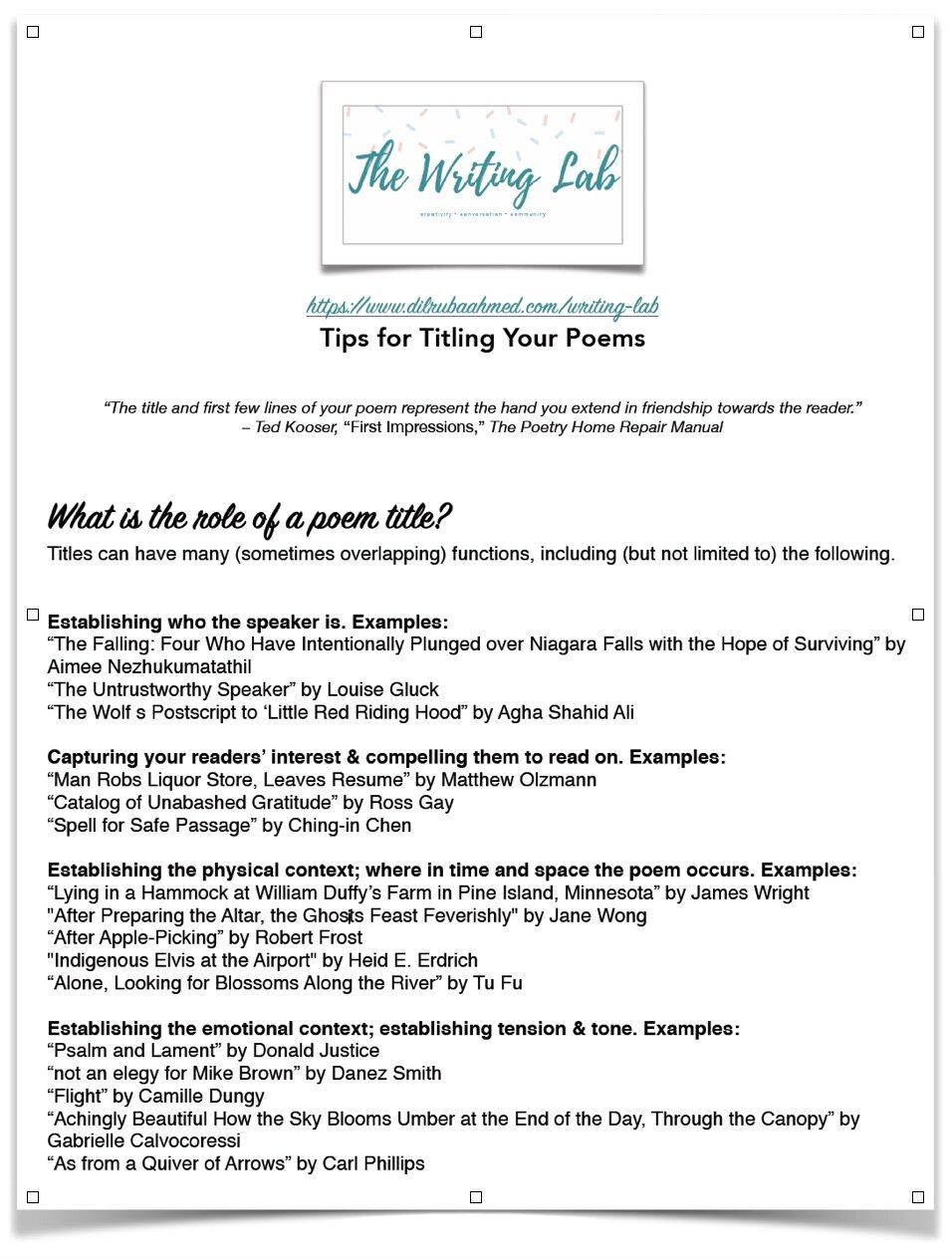MAY TAKE LONGER THAN EXPECTED
/I type one e-mail and then find another, half-finished. Read one article, a rabbit-hole to many other articles. Graphs, maps, stats. Headlines, how-tos, alerts. Must read more. No: must read less. Crave sleep. Can’t sleep. I fling open our full cupboards, thinking of a neighboring town where more than 30% live in poverty. What happens there now? My ritual of making homemade pho becomes a greater luxury, star anise floating in a broth-pot, bowls topped with lemon-squeeze, torn mint.
***
The mint I bummed off a friend last summer by offering a trade for kale seedlings. The original mint sprig lives in a glass jar on my windowsill with siblings grown from cuttings, each in a separate container. Bright green sprigs sprouting leaf after leaf from nothing but sunshine and half-cup of water, replaced each week. So little they need in order to flourish, so little to survive and grow. Humans need so much more: fertile soil for nourishment, shelter from storm. Entangled roots, support systems, fertilizer, delivery routes for what’s essential. Our country offers the equivalent of water, half-cup or less depending on who you are, a pandemic now casting a harsh light both on our infrastructure of indifference and our inescapable interconnectedness.
***
The interconnected hospital rooms had lent little privacy when my older son was hospitalized a decade ago with pneumonia. After two fevered nights curled together in a hospital bed, we returned home through a blizzard: restored, safe. On the other side of a too-small curtain, the toddler of a young African American woman had cried continually, pausing only to inhale breathing treatments and to sleep in exhaustion. A crossing guard at a local school, the baby’s mother explained tearfully to nurses that she had to report to work. She couldn’t stay. When she left, the nurses lovingly held and bathed her screaming daughter, who couldn’t be consoled. No livable wage, no back-up support systems, possibly no insurance. What happens a family like hers, now?
***
“What are we we supposed to do now?” Playdates off-limits. Libraries, schools, playgrounds closed. When asked months ago, my kindergartner wrote in unsteady letters on a school project, “My dream is to play outside every day.” In sunlight, we pedal past porches and parked cars, past the park gazebo that houses each year’s egg hunt, to the local creek where we turn over silent stones. We end our ride at an empty school parking lot, another tiny corner of freedom. At first, my younger son gleefully rides into puddles, splashing water onto ankles and shoes. Soon enough, we distance from puddle-water, too.
***
I dream of water, a great slow wave washing up to the shore where I sit at an empty desk. The swell pushes my desk up with a gradual, steady force that makes my stomach flutter. To my left, a wet-suited surfer recovers and stands once more on her board; to my right, my local county council gathers on sand with dripping business suits to continue a meeting. The swell diminishes, slowly, my desk returns to stable land. We ride the wave—the surfer, the suits—we ride it out. I call my mother to report the dream, as we’d promised to do long ago, when I wake.
***
By the time I wake, my two boys have carpeted their floor with Star Wars action figures, Legos, clean socks. School closed for two more weeks. As we spread butter across waffles, I review key points of the detailed plan we’d developed together the night before: protection, preparedness, patience, and practicality. In sum, we’d join the light side, unite our Jedi powers, and fight the pandemic’s dark forces. “We’ll wash our hands a lot,” I remind them. My younger son teasingly parrots my statements. “Wash hands a lot,” he chirps. “We’ll stop touching our faces,” I explain, and he repeats. “Stay 6 feet apart from others,” I say. Again, he parrots me. “If we can be patient, creative, and flexible, we’ll save humanity together,” I say. “Save humanity,” he squawks with a smile.
***
No one will see our smiles after I tie winter scarves around each son’s face, then onto my own. Outside, trees teem with cherry blossoms. The breeze pulls on magnolia petals: pink, yellow, cream. We look like robbers, my older boy says. My younger son tugs at his multi-colored fleece, announcing, “I’m a rainbow bandit. A leprechaun’s assistant. Because the leprechaun is having trouble finding rainbows.” I nod slowly and repeat, having trouble finding rainbows. We pull our scarves up and our helmets down. We lean over handlebars and pedal more fiercely, scarves lashing around us as we narrow our eyes against the oncoming wind.





